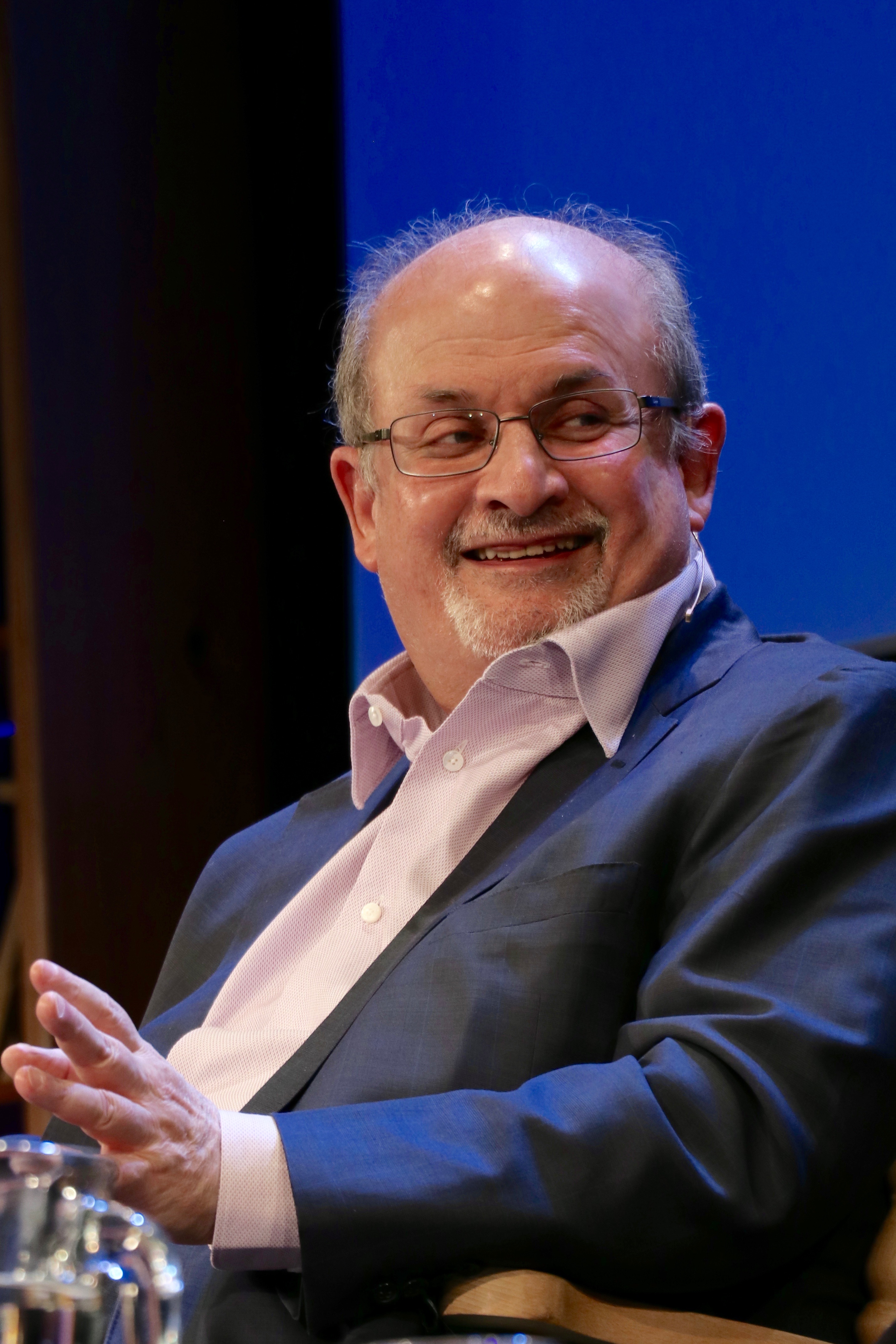Works
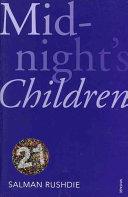
Midnight's Children
Salman Rushdie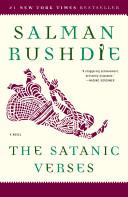
The Satanic Verses
Salman Rushdie
The Ground Beneath Her Feet
Salman Rushdie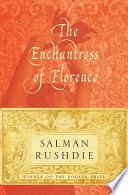
The Enchantress of Florence
Salman Rushdie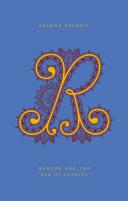
Haroun and the Sea of Stories
Salman Rushdie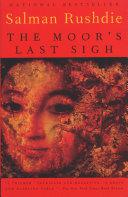
The Moor's Last Sigh
Salman Rushdie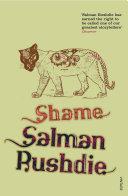
Shame
Salman Rushdie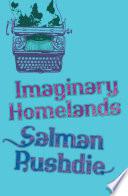
Imaginary Homelands
Salman Rushdie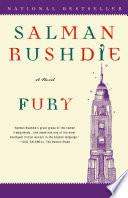
Fury
Salman Rushdie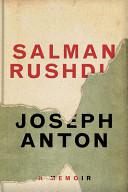
Joseph Anton: A Memoir
Salman Rushdie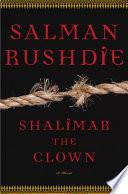
Shalimar the Clown
Salman Rushdie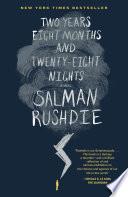
Two Years Eight Months and Twenty-Eight Nights
Salman RushdieFamous Salman Rushdie Quotes
“Things, even people have a way of leaking into each other like flavours when you cook.”
Source: Midnight's Children
Salman Rushdie Quotes about the world
“A sigh isn't just a sigh. We inhale the world and breathe out meaning. While we can. While we can.”
Source: The Moor's Last Sigh
“The world, somebody wrote, is the place we prove real by dying in it.”
Source: The Satanic Verses (1988)
“I learned: the first lesson of my life: nobody can face the world with his eyes open all the time.”
Source: Midnight's Children
Source: Haroun and the Sea of Stories
Salman Rushdie Quotes about people
Address at Columbia University (1991)
Context: Too many people had spent too long demonizing or totemizing me to listen seriously to what I had to say. In the West, some "friends" turned against me, calling me by yet another set of insulting names. Now I was spineless, pathetic, debased; I had betrayed myself, my Cause; above all, I had betrayed them.
I also found myself up against the granite, heartless certainties of Actually Existing Islam, by which I mean the political and priestly power structure that presently dominates and stifles Muslim societies. Actually Existing Islam has failed to create a free society anywhere on Earth, and it wasn't about to let me, of all people, argue in favor of one.
“The only people who see the whole picture are the ones who step outside the frame.”
Source: The Ground Beneath Her Feet (1999)
Salman Rushdie: Trending quotes
“A photograph is a moral decision taken in one eighth of a second.”
Source: The Ground Beneath Her Feet
Salman Rushdie Quotes
“What is freedom of expression? Without the freedom to offend, it ceases to exist.”
As quoted in "The right to be downright offensive" by Jonathan Duffy in BBC News Magazine (21 December 2004) http://news.bbc.co.uk/2/hi/uk_news/magazine/4114497.stm
“From the beginning men used God to justify the unjustifiable.”
Source: The Satanic Verses
Address at Columbia University (1991)
Context: Ibn Rushd's ideas were silenced in their time. And throughout the Muslim world today, progressive ideas are in retreat. Actually Existing Islam reigns supreme, and just as the recently destroyed "Actually Existing Socialism" of the Soviet terror-state was horrifically unlike the utopia of peace and equality of which democratic socialists have dreamed, so also is Actually Existing Islam a force to which I have never given in, to which I cannot submit.
There is a point beyond which conciliation looks like capitulation. I do not believe I passed that point, but others have thought otherwise.
Imaginary Homelands (1992)
Context: Those who oppose the novel most vociferously today are of the opinion that intermingling with a different culture will inevitably weaken and ruin their own. I am of the opposite opinion. The Satanic Verses celebrates hybridity, impurity, intermingling, the transformation that comes of new and unexpected combinations of human beings, cultures, ideas, politics, movies, songs. It rejoices in mongrelization and fears the absolutism of the Pure. Melange, hotchpotch, a bit of this and a bit of that is how newness enters the world. It is the great possibility that mass migration gives the world… The Satanic Verses is for change-by-fusion, change-by-conjoining. It is a love song to our mongrel selves.
“It’s fun to read things when you don't know all the words. Even children love it.”
Salon interview (1996)
Context: It’s fun to read things when you don't know all the words. Even children love it. One of the things any great children’s writer will tell you is that children like it if in books designed for their age group there is a vocabulary just slightly bigger than theirs. So they come up against weird words, and the weird words excite them. If you describe a small girl in a story as “loquacious,” it works so much better than “talkative.” And then some little girl will read the book and her sister will be shooting her mouth off and she will say to her sister, “Don't be so loquacious.” It is a whole new weapon in her arsenal.
Address at Columbia University (1991)
Context: "Our lives teach us who we are." I have learned the hard way that when you permit anyone else's description of reality to supplant your own — and such descriptions have been raining down on me, from security advisers, governments, journalists, Archbishops, friends, enemies, mullahs — then you might as well be dead. Obviously, a rigid, blinkered, absolutist world view is the easiest to keep hold of, whereas the fluid, uncertain, metamorphic picture I've always carried about is rather more vulnerable. Yet I must cling with all my might to … my own soul; must hold on to its mischievous, iconoclastic, out-of-step clown-instincts, no matter how great the storm. And if that plunges me into contradiction and paradox, so be it; I've lived in that messy ocean all my life. I've fished in it for my art. This turbulent sea was the sea outside my bedroom window in Bombay. It is the sea by which I was born, and which I carry within me wherever I go.
"Free speech is a non-starter," says one of my Islamic extremist opponents. No, sir, it is not. Free speech is the whole thing, the whole ball game. Free speech is life itself.
“Free speech is the whole thing, the whole ball game. Free speech is life itself.”
Address at Columbia University (1991)
Context: "Our lives teach us who we are." I have learned the hard way that when you permit anyone else's description of reality to supplant your own — and such descriptions have been raining down on me, from security advisers, governments, journalists, Archbishops, friends, enemies, mullahs — then you might as well be dead. Obviously, a rigid, blinkered, absolutist world view is the easiest to keep hold of, whereas the fluid, uncertain, metamorphic picture I've always carried about is rather more vulnerable. Yet I must cling with all my might to … my own soul; must hold on to its mischievous, iconoclastic, out-of-step clown-instincts, no matter how great the storm. And if that plunges me into contradiction and paradox, so be it; I've lived in that messy ocean all my life. I've fished in it for my art. This turbulent sea was the sea outside my bedroom window in Bombay. It is the sea by which I was born, and which I carry within me wherever I go.
"Free speech is a non-starter," says one of my Islamic extremist opponents. No, sir, it is not. Free speech is the whole thing, the whole ball game. Free speech is life itself.
“So they come up against weird words, and the weird words excite them.”
Salon interview (1996)
Context: It’s fun to read things when you don't know all the words. Even children love it. One of the things any great children’s writer will tell you is that children like it if in books designed for their age group there is a vocabulary just slightly bigger than theirs. So they come up against weird words, and the weird words excite them. If you describe a small girl in a story as “loquacious,” it works so much better than “talkative.” And then some little girl will read the book and her sister will be shooting her mouth off and she will say to her sister, “Don't be so loquacious.” It is a whole new weapon in her arsenal.
Address at Columbia University (1991)
Context: For many people, I've ceased to be a human being. I've become an issue, a bother, an "affair." … And has it really been so long since religions persecuted people, burning them as heretics, drowning them as witches, that you can't recognize religious persecution when you see it? … What is my single life worth? Despair whispers in my ear: "Not a lot." But I refuse to give in to despair … because … I know that many people do care, and are appalled by the … upside-down logic of the post-fatwa world, in which a … novelist can be accused of having savaged or "mugged" a whole community, becoming its tormentor (instead of its … victim) and the scapegoat for … its discontents…. (What minority is smaller and weaker than a minority of one?)
“Ibn Rushd's ideas were silenced in their time.”
Address at Columbia University (1991)
Context: Ibn Rushd's ideas were silenced in their time. And throughout the Muslim world today, progressive ideas are in retreat. Actually Existing Islam reigns supreme, and just as the recently destroyed "Actually Existing Socialism" of the Soviet terror-state was horrifically unlike the utopia of peace and equality of which democratic socialists have dreamed, so also is Actually Existing Islam a force to which I have never given in, to which I cannot submit.
There is a point beyond which conciliation looks like capitulation. I do not believe I passed that point, but others have thought otherwise.
Midnight's Children (1981)
Context: Who what am I? My answer: I am the sum total of everything that went before me, of all I have been seen done, of everything done-to-me. I am everyone everything whose being-in-the-world affected was affected by mine. I am anything that happens after I've gone which would not have happened if I had not come. Nor am I particularly exceptional in this matter; each "I", everyone of the now-six-hundred-million-plus of us, contains a similar multitude. I repeat for the last time: to understand me, you'll have to swallow a world.
Salon interview (1996)
Context: When I was growing up, everyone around me was fond of fooling around with words. It was certainly common in my family, but I think it is typical of Bombay, and maybe of India, that there is a sense of play in the way people use language. Most people in India are multilingual, and if you listen to the urban speech patterns there you'll find it's quite characteristic that a sentence will begin in one language, go through a second language and end in a third. It's the very playful, very natural result of juggling languages. You are always reaching for the most appropriate phrase.
“When I was growing up, everyone around me was fond of fooling around with words.”
Salon interview (1996)
Context: When I was growing up, everyone around me was fond of fooling around with words. It was certainly common in my family, but I think it is typical of Bombay, and maybe of India, that there is a sense of play in the way people use language. Most people in India are multilingual, and if you listen to the urban speech patterns there you'll find it's quite characteristic that a sentence will begin in one language, go through a second language and end in a third. It's the very playful, very natural result of juggling languages. You are always reaching for the most appropriate phrase.
Address at Columbia University (1991)
Context: I determined to make my peace with Islam, even at the cost of my pride. Those who were surprised and displeased by what I did perhaps failed to see that … I wanted to make peace between the warring halves of the world, which were also the warring halves of my soul….
The really important conversations I had in this period were with myself.
I said: Salman, you must send a message loud enough to … make ordinary Muslims see that you aren't their enemy, and you must make the West understand a little more of the complexity of Muslim culture …, and start thinking a little less stereotypically…. And I said to myself: Admit it, Salman, the Story of Islam has a deeper meaning for you than any of the other grand narratives. Of course you're no mystic, mister…. No supernaturalism, no literalist orthodoxies … for you. But Islam doesn't have to mean blind faith. It can mean what it always meant in your family, a culture, a civilization, as open-minded as your grandfather was, as delightedly disputatious as your father was. … Don't let the zealots make Muslim a terrifying word, I urged myself; remember when it meant family. …
I reminded myself that I had always argued that it was necessary to develop the nascent concept of the "secular Muslim," who, like the secular Jew, affirmed his membership of the culture while being separate from the theology…. But, Salman, I told myself, you can't argue from outside the debating chamber. You've got to cross the threshold, go inside the room, and then fight for your humanized, historicized, secularized way of being a Muslim.
Address at Columbia University (1991)
Context: "Our lives teach us who we are." I have learned the hard way that when you permit anyone else's description of reality to supplant your own — and such descriptions have been raining down on me, from security advisers, governments, journalists, Archbishops, friends, enemies, mullahs — then you might as well be dead. Obviously, a rigid, blinkered, absolutist world view is the easiest to keep hold of, whereas the fluid, uncertain, metamorphic picture I've always carried about is rather more vulnerable. Yet I must cling with all my might to … my own soul; must hold on to its mischievous, iconoclastic, out-of-step clown-instincts, no matter how great the storm. And if that plunges me into contradiction and paradox, so be it; I've lived in that messy ocean all my life. I've fished in it for my art. This turbulent sea was the sea outside my bedroom window in Bombay. It is the sea by which I was born, and which I carry within me wherever I go.
"Free speech is a non-starter," says one of my Islamic extremist opponents. No, sir, it is not. Free speech is the whole thing, the whole ball game. Free speech is life itself.
Address at Columbia University (1991)
Context: For many people, I've ceased to be a human being. I've become an issue, a bother, an "affair." … And has it really been so long since religions persecuted people, burning them as heretics, drowning them as witches, that you can't recognize religious persecution when you see it? … What is my single life worth? Despair whispers in my ear: "Not a lot." But I refuse to give in to despair … because … I know that many people do care, and are appalled by the … upside-down logic of the post-fatwa world, in which a … novelist can be accused of having savaged or "mugged" a whole community, becoming its tormentor (instead of its … victim) and the scapegoat for … its discontents…. (What minority is smaller and weaker than a minority of one?)
“I repeat for the last time: to understand me, you'll have to swallow a world.”
Midnight's Children (1981)
Context: Who what am I? My answer: I am the sum total of everything that went before me, of all I have been seen done, of everything done-to-me. I am everyone everything whose being-in-the-world affected was affected by mine. I am anything that happens after I've gone which would not have happened if I had not come. Nor am I particularly exceptional in this matter; each "I", everyone of the now-six-hundred-million-plus of us, contains a similar multitude. I repeat for the last time: to understand me, you'll have to swallow a world.
“Nothing really improves us. Whatever improves one person will disimprove another.”
Salon interview (1996)
Context: Nothing really improves us. Whatever improves one person will disimprove another. Some people are paralyzed by the consciousness of death, other people live with it. … The fatwa certainly made me think about it a lot more than I ever had. I guess I know I'm going to die, but then, so are you. And one of the things that I thought a lot about at the time of the fatwa and ever since is that quite a few of the people I really care about died during this period, all about the same age as I am, and they were not under a death sentence. They just died, of lung cancer, AIDS, whatever. It occurred to me that you don't need a fatwa, it can happen anytime.
Imaginary Homelands (1992)
Context: Those who oppose the novel most vociferously today are of the opinion that intermingling with a different culture will inevitably weaken and ruin their own. I am of the opposite opinion. The Satanic Verses celebrates hybridity, impurity, intermingling, the transformation that comes of new and unexpected combinations of human beings, cultures, ideas, politics, movies, songs. It rejoices in mongrelization and fears the absolutism of the Pure. Melange, hotchpotch, a bit of this and a bit of that is how newness enters the world. It is the great possibility that mass migration gives the world… The Satanic Verses is for change-by-fusion, change-by-conjoining. It is a love song to our mongrel selves.
“Now I know what a ghost is. Unfinished business, that's what.”
Source: The Satanic Verses
Source: Midnight's Children
“How do you defeat terrorism? Don’t be terrorized.”
Source: Step Across This Line: Collected Nonfiction 1992-2002
“What can't be cured must be endured.”
The Anatomy of Melancholy (1621), Part II
Source: Midnight's Children
“Children are the vessels into which adults pour their poison.”
Source: Midnight's Children (1981)
“We were language's magpies by nature, stealing whatever sounded bright and shiny.”
Source: The Ground Beneath Her Feet
“To understand just one life, you have to swallow the world.”
Variant: To understand just one life you have to swallow the world... do you wonder, then, that I was a heavy child?
Source: Midnight's Children
“Not all possibilities are open to us. The world is finite; our hopes spill over its rim.”
Source: The Satanic Verses
“We crave permission openly to become our secret selves.”
Source: The Moor's Last Sigh
“When you throw everything up in the air anything becomes possible.”
Source: The Satanic Verses
“I admit it: above all things, I fear absurdity.”
Source: Midnight's Children
"Imaginary Homelands (1992)
Source: Imaginary Homelands: Essays and Criticism 1981-1991
Context: It may be argued that the past is a country from which we have all emigrated, that its loss is part of our common humanity. Which seems to be self-evidently true; but I suggest that the writer who is out-of-country and even out-of-language may experience this loss in an intensified form. It is made more concrete for him by the physical fact of discontinuity, of his present being in a different place from his past, of his being "elsewhere"… human beings do not perceive things whole; we are not gods but wounded creatures, cracked lenses, capably only of fractured perceptions. Partial beings, in all the senses of that phrase. Meaning is a shaky edifice we build out of scraps, dogmas, childhood injuries, newspaper articles, chance remarks, old films, small victories, people hated, people loved; perhaps it is because of our sense of what is the case is constructed from such inadequate materials that we defend it so fiercely, even to the death.
“The lessons one learns at school are not always the ones the school thinks it's teaching.”
Source: Joseph Anton: A Memoir
“Everything has shape, if you look for it. There is no escape from form.”
Source: Midnight's Children
